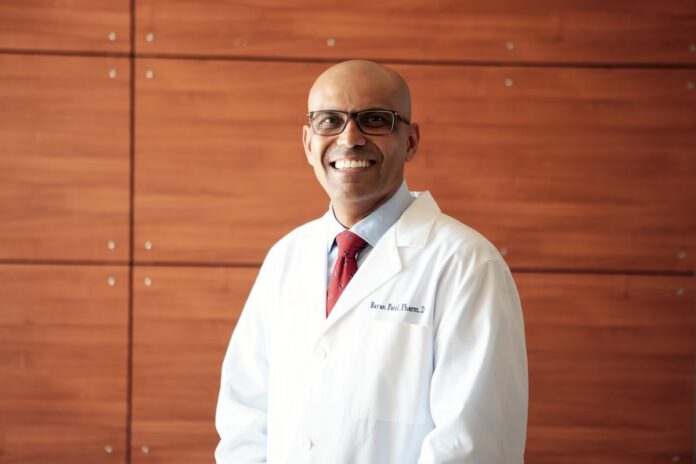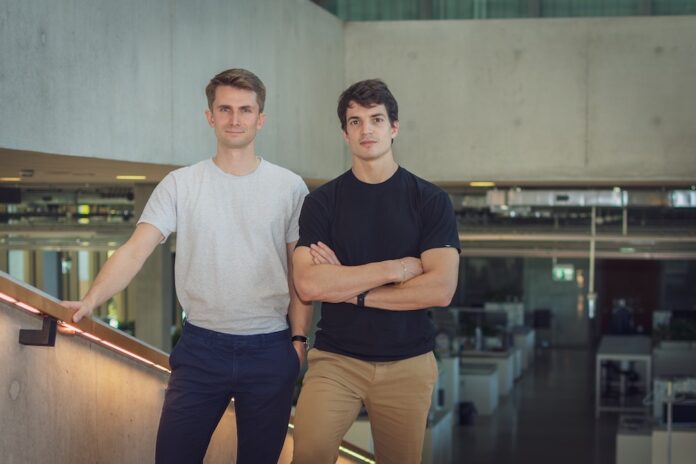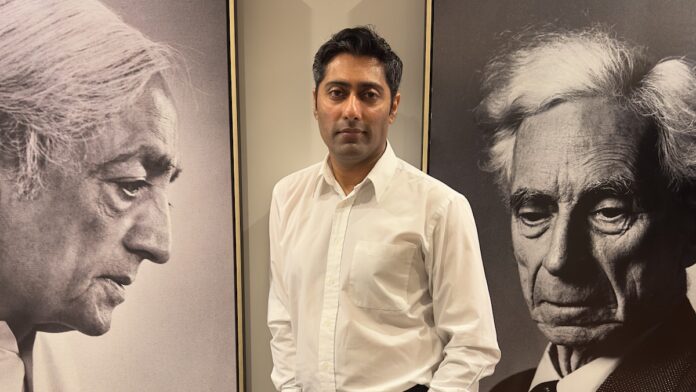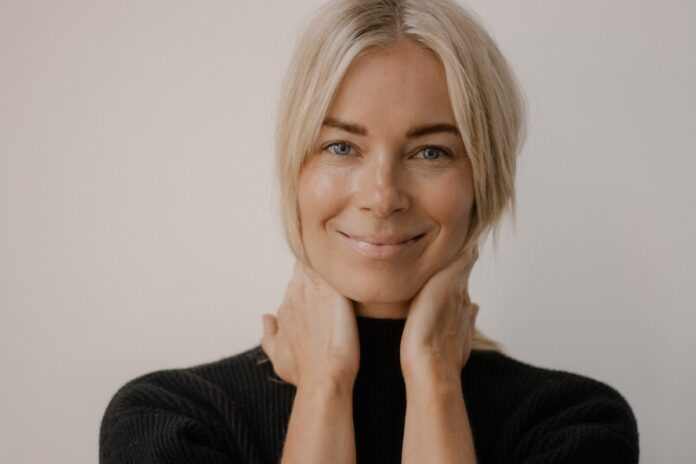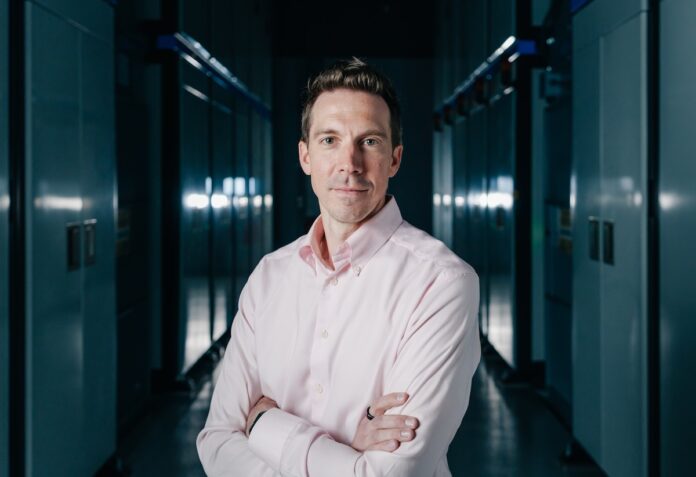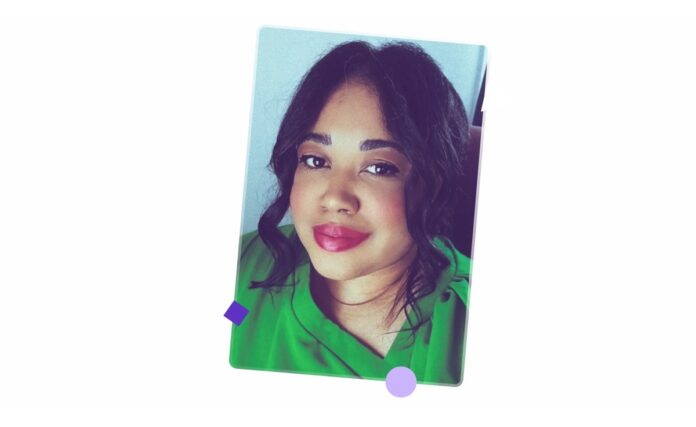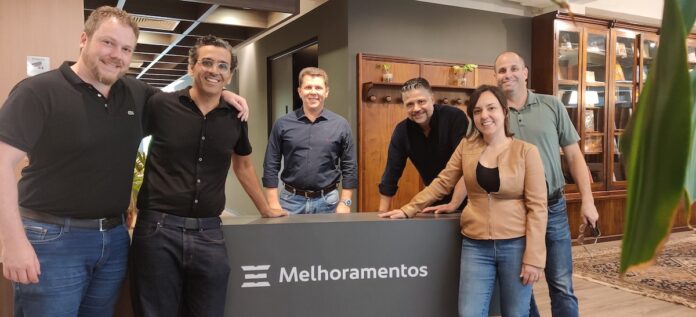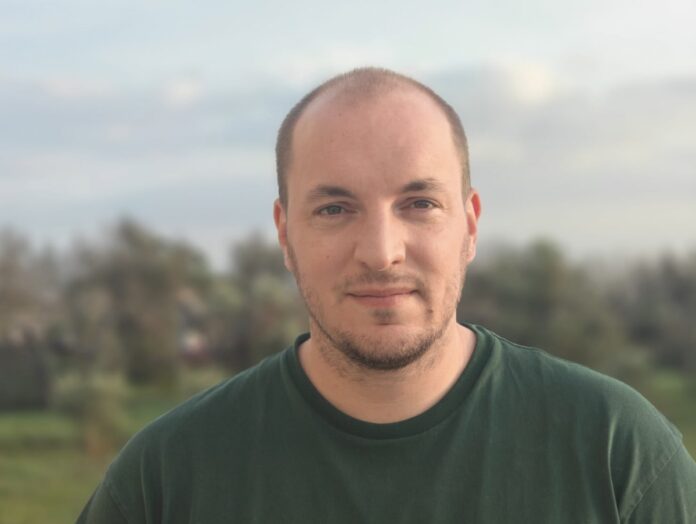The International Centre for Sustainability (ICfS), a leading think tank in sustainability, bridges India and the West to tackle global challenges and foster impactful solutions—one conversation at a time
Can you share a bit about your journey? You had a successful career in private equity—what inspired you to leave that path and focus on environmental advocacy?
I’ve always believed that true success lies not just in what you achieve but in the legacy you leave behind. For over a decade, I thrived in the high-octane world of private equity, navigating deals, building leadership teams, and delivering results. But amid the spreadsheets and boardrooms, a question began to linger: What next?
Growing up as a working-class boy in Leicester, raised by immigrant parents, I internalized values of resilience, hard work, and a desire to leave the world better than I found it. These lessons fuelled my ascent in the investment world, where I spent 12 years, including five as a partner, managing decisions that shaped companies and careers. Yet, the deeper I delved into the mechanics of profit, the more I realised the cost of ignoring purpose.
The turning point came when I began to reflect on sustainability—not just as an environmental concept but as a principle that can drive innovation and human progress. I saw the opportunity to bridge two worlds that I uniquely understood: India, with its immense potential, and the West, with its capital and influence. This realisation sparked a transformative pivot from private equity to a purpose-led mission of environmental advocacy.
Today, through the International Centre for Sustainability, I channel my expertise, networks, and vision into building solutions that harmonise people, planet, and profit. It’s about more than policies and programs; it’s about proving that sustainability is not a trade-off but a catalyst for flourishing. Leaving private equity wasn’t a departure from success—it was a redefinition of it, rooted in the belief that our greatest achievements are those that serve others and secure a better future.
Was there a defining moment or realization that prompted this shift?
Yes, there was a moment of clarity that changed everything. I was sitting in a boardroom after yet another high-stakes negotiation, one that would undoubtedly deliver significant returns for our investors. On paper, it was a success. But as the meeting wrapped up, I found myself asking: What does all of this actually mean in the bigger picture?
That question haunted me. I realised that while I was proud of my achievements, the impact I was making was narrow confined to financial outcomes, rather than addressing the larger systemic challenges the world faces. Around the same time, I travelled to India for what was supposed to be a routine visit to pursue deals. Instead, it became a profound reckoning. I saw firsthand the juxtaposition of immense potential and deep environmental and societal challenges.
From polluted rivers to communities grappling with the consequences of rapid industrialisation, it became clear to me that economic progress without sustainability would eventually unravel. Furthermore, I realised that India houses 20% of humanity; and it was at an inflection point in that if India could rebuild herself on a system that harmonises People, Planet and Profit, then it could be a world leader; and a significant contributor to the global south’s journey to a developed status.
But if India got it wrong; well, I just knew that India was too big, too significant to fail – it must succeed for all our sakes!
The defining moment wasn’t a single epiphany but a collision of experiences—my dissatisfaction with the status quo, my reconnection with India’s challenges and opportunities, and a deep-seated belief that business could be a force for good. It was then that I decided to step off the treadmill of private equity and focus my efforts on something that felt more enduring: creating bridges between people, ideas, and actions to tackle the world’s most pressing issues, starting with sustainability. That shift was less a leap of faith and more a leap of purpose, one that has defined my path ever since.
How did your experience in finance prepare you for this new chapter in sustainability? Were there key lessons or skills that proved valuable in your transition?
Finance was my proving ground, where I learned to think strategically, make high-stakes decisions, and balance risk with reward. It taught me the discipline of evaluating not just what’s in front of you but what lies ahead—a skill that has proven invaluable in sustainability, where the stakes involve not just financial returns but the well-being of people and the planet.
One of the most transferable lessons was the ability to see the bigger picture. In private equity, we were trained to spot trends, anticipate disruptions, and align resources to create long-term value. That same approach underpins my work in sustainability: understanding the macro-forces shaping our world, like climate change and resource scarcity, and translating them into actionable strategies.
Another key takeaway was the importance of collaboration. In finance, deals succeed when you bring together diverse stakeholders—investors, management teams, and regulators—and align them toward a common goal. Sustainability operates on the same principle: success depends on uniting governments, businesses, and communities to tackle shared challenges.
Lastly, finance instilled in me a results-oriented mindset. Private equity is unforgiving when it comes to accountability, and that rigor is something I’ve carried into my work today. Sustainability isn’t just about ideals—it’s about measurable impact. Whether it’s reducing carbon footprints, improving resource efficiency, or fostering equitable growth, I approach these challenges with the same precision and determination that defined my financial career.
In many ways, my time in finance wasn’t a departure from sustainability—it was the foundation for it. It showed me that profitability and purpose are not opposing forces but can be harmonised to create lasting, meaningful change.
What is the core mission of the International Centre for Sustainability (ICfS), and what challenges are you aiming to address?
The International Centre for Sustainability (ICfS) is a British think-tank. It is on a transformative mission: to harmonise the priorities of people, planet, and profit while serving as a bridge between India and the West. Our work focuses on fostering collaboration between leaders from these two interconnected regions, addressing global challenges through sustainable solutions and strategic partnerships.
At its core, ICfS recognises the immense potential of uniting India’s dynamic growth and ingenuity with the West’s capital, technology, and governance expertise. By bringing together policymakers, business leaders, and innovators from both regions, we aim to create a platform for knowledge transfer, shared learning, and actionable change.
Our mission is built on three key pillars:
- Bridging Worlds: ICfS serves as a nexus for dialogue, connecting India’s entrepreneurial energy with the West’s institutional frameworks. We create opportunities for leaders to collaborate on critical issues such as climate action, sustainable development, and resource management, ensuring solutions are both localised and globally relevant.
- Policy Advocacy: By fostering understanding and aligning priorities, we help leaders navigate the complexities of cross-regional challenges. Whether it’s driving capital investment into India’s infrastructure or creating frameworks for equitable growth, ICfS is committed to shaping policies that deliver mutual benefits.
- Capacity Building Across Borders: Through training programs, peer-to-peer networks, and thought leadership, we empower decision-makers in India and the West to adopt sustainable practices that balance economic growth with environmental stewardship.
The challenges we address are profound. India’s rapid development demands innovative approaches to sustainability, while the West’s transition to greener economies offers valuable lessons and opportunities for collaboration. At ICfS, we see these challenges not as barriers but as openings to redefine how the world’s two most influential regions engage with one another.
Ultimately, ICfS aims to demonstrate that sustainability is not a zero-sum game. By leveraging the strengths of India and the West, we can create solutions that are scalable, inclusive, and impactful—laying the foundation for a future where people, the planet, and profit coexist harmoniously.
Can you highlight any specific projects currently underway at ICfS? What successes or milestones have you achieved so far?
The International Centre for Sustainability (ICfS) may be young, having formally launched in April 2024, but we’ve already made tremendous strides in building our networks of influence across India and the West. Political and business leaders are increasingly recognising the innovative approaches we bring to solving systemic challenges, particularly in aligning sustainability with economic growth.
One of our flagship projects focuses on water scarcity as a national security risk for India. Water is not just a resource; it’s the foundation of India’s long-term success. Through this initiative, ICfS is working to make water management the number one political priority for India and a global concern. By highlighting the risks of mismanagement—ranging from economic instability to societal unrest—we aim to galvanise action among policymakers, businesses, and communities. Our work involves convening experts, researchers, and leaders to drive solutions that secure India’s water resources for future generations.
Beyond advocacy, ICfS is creating pathways for practical action. Through our UK-India Business Hub in the City of London, we are facilitating innovation in water and sustainability-related businesses. By providing co-working spaces, assisting with capital raising, and connecting entrepreneurs with key networks—including scientists, researchers, and political leaders—we aim to accelerate solutions that can scale across borders.
In less than a year, we’ve laid a strong foundation for influence and impact. Our work on water scarcity is just the beginning. ICfS is rapidly positioning itself as a leader in fostering meaningful collaboration between India and the West to address the challenges of sustainability, one transformative project at a time.
How does the ICfS act as a bridge between economic interests and environmental awareness? What strategies do you use to drive systemic change?
The International Centre for Sustainability (ICfS) bridges economic interests and environmental awareness by aligning profitability with purpose. Our strategy centres on fostering collaboration between business leaders, policymakers, and researchers from India and the West, ensuring sustainability is not seen as a trade-off but as a driver of innovation and growth.
We drive systemic change through:
- Policy Advocacy: Engaging decision-makers to align economic frameworks with sustainable development goals.
- Knowledge Transfer: Sharing cutting-edge research to demonstrate the economic value of environmental stewardship.
- Business Facilitation: Through our UK-India Business Hub, we enable sustainable enterprises by providing co-working spaces, capital-raising support, and connections to influential networks.
By harmonising these efforts, ICfS positions sustainability as a practical and profitable approach to addressing global challenges.
Many people still perceive business and sustainability as opposing forces. How do you reconcile these worlds, and what message do you aim to convey to skeptics?
The idea that business and sustainability are opposing forces is a misconception we’re determined to change. At the International Centre for Sustainability (ICfS), we emphasise that sustainability is not a limitation—it’s an opportunity to unlock innovation, improve efficiencies, and create long-term profitability. Businesses that embed sustainability into their models are future-proofing themselves for a world increasingly driven by conscious consumers, investors, and regulators.
Take vegan food production, for example. Beyond its environmental benefits—requiring significantly less land, water, and energy compared to animal agriculture—it is also proving to be more profitable. The global plant-based food market is projected to grow exponentially, driven by shifting consumer preferences and lower production costs. Companies embracing these trends are capturing market share while reducing their ecological footprint.
At ICfS, we reconcile these worlds by demonstrating that sustainability is not just an ethical obligation but a business imperative. We bring sceptics the evidence: real-world examples of businesses thriving through green innovation, from plant-based foods to renewable energy and water conservation technologies. The work of the Indian conglomerate, the Essar Group in the UK, is another example of a business that is transitioning to this new paradigm through stellar leadership.
Our message is simple but transformative: sustainability is the next frontier of economic opportunity. Businesses that see it as a cost risk being left behind. Those that embrace it position themselves as leaders in a rapidly changing world. ICfS exists to help bridge that gap and show how profitability and purpose can—and must—work together.
What advice would you give to companies that want to embrace sustainability but fear it might hurt their profitability?
To companies hesitant about sustainability due to fears of profitability loss, my advice is clear: embrace sustainability as a strategy that can enhance margins, attract talent, and secure a competitive edge. Sustainability is not just about doing what’s right—it’s about doing what works.
A powerful example is the Essar Group, led by visionary chairman Prashant Ruia, who we are proud to work with. At their Stanlow refinery in the UK, Essar is spearheading one of Europe’s largest green hydrogen projects. This bold initiative isn’t just about decarbonising their operations; it’s about creating a business model that aligns sustainability with better margins, innovation, and long-term success.
Here’s how it works: By reducing their operational costs through green hydrogen, Essar is reinvesting the savings to attract and retain top talent. Better margins mean the ability to pay for better people—and better people drive more innovation and growth. This cycle of improvement strengthens the business, enabling Essar to take market share and establish dominance for decades to come. It’s a clear case of first-mover advantage, a lesson that Prashant Ruia and his team have fully embraced.
For companies weighing this decision, the key is to focus on the medium-term gains. Sustainability, when done right, brings costs down—whether through energy efficiency, waste reduction, or process improvements. The savings create a differential that can be reinvested into your workforce, fuelling a virtuous cycle of talent, innovation, and growth.
At its heart, this aligns with my values: harmonizing the priorities of people, planet, and profit. Sustainable companies are better positioned to attract and nurture talent, outpace competitors, and lead markets—not just ethically but commercially. The example set by Essar Group shows that by aligning sustainability with strategy, you’re not just surviving the transition—you’re thriving in it.
From your perspective, how critical is the role of capital and investment in transitioning to a sustainable economy? What changes would you like to see in this space?
Capital and investment are absolutely critical in transitioning to a sustainable economy. Without the right financial support, even the most promising ideas cannot scale. What’s often overlooked is that sustainability, when done right, isn’t just good for the planet—it also means better margins and better talent. This alignment makes the role of capital even more essential.
Two key changes are needed:
- Capital Reallocation with Awareness: Credit committees and investment decision-makers must better understand the real, tangible benefits of sustainability. Reduced costs, improved margins, and the ability to attract top talent make sustainable businesses more competitive in the medium term. Investors need to see sustainability not as a risk but as an opportunity for stronger financial performance. This is where ICfS plays a critical role—facilitating dialogue and creating awareness among financial leaders about how sustainability drives value.
- Blended Public and Private Investments: Governments cannot lead this transition alone. Private capital must engage more deeply, supported by frameworks that align environmental impact with returns. Tools like green bonds, public-private partnerships, and financial instruments that de-risk sustainable investments are vital to making these projects viable at scale.
At ICfS, we actively connect financial institutions with opportunities that align profitability with sustainability. By fostering these conversations and providing evidence of how sustainable practices lead to better margins, we aim to shift the mindset of capital allocators. Ultimately, this is about creating a virtuous cycle: capital enables sustainability, which drives better talent and innovation, which in turn attracts more capital.
The transition to a sustainable economy requires not just investment but a fundamental shift in how capital is perceived and deployed. At ICfS, we’re committed to making that shift happen.
You often speak about the urgent phase our planet is currently in. What developments or trends concern you the most?
We are at a pivotal moment for our planet, facing urgent challenges that extend beyond ecology to economic opportunity and global stability. Climate change is accelerating—water scarcity, deforestation, and the environmental toll of the meat industry demand immediate action. Transitioning to plant-based lifestyles and sustainable practices isn’t just an ecological necessity; it’s a moral and economic imperative.
What concerns me equally is the uneven distribution of prosperity. If the 21st century is to succeed, we must address the systemic disparities that have left the Global South behind. Economic growth must be inclusive, creating opportunities in regions most vulnerable to climate change. Stability and sustainability go hand in hand—without one, the other will falter.
This isn’t just about survival; it’s about building a more equitable world. If we fail to get this balance right, the risks—social unrest, resource wars, and irreversible environmental damage—will undermine the future for all of us. We have the tools and knowledge; now we need the will to act.
Your approach focuses on connecting India and the West. Why do you believe this global perspective is particularly vital?
Connecting India and the West is critical because India represents 20% of humanity and nearly 8% of the world’s biodiversity. Its success or failure impacts us all. India’s vast, diverse, and vibrant democracy makes it a unique counterpoint to authoritarian models like China’s ultra-nationalist capitalism.
If we can make India a large-scale success—economically, environmentally, and socially—it becomes a beacon of hope for the Global South, showing that democracy and diversity can thrive alongside development. Conversely, if India falters, the void could be filled by the very autocracy and despotism we see too often in other regions.
India’s scale and significance are simply too large to ignore. A globally connected approach is vital to ensure its success, which, in turn, would mean success for the world.
What role do you see for technology and innovation in solving environmental challenges? Are there any initiatives or projects that inspire you personally?
Technology and innovation—particularly green hydrogen, quantum computing, and biotech—hold immense potential to solve our most pressing environmental challenges. Underpinned by AI, these advancements enable breakthroughs like vertical farming, which can revolutionise food production, reduce resource use, and allow us to return vast tracts of land to nature.
Green hydrogen offers a path to decarbonising heavy industries, quantum computing can optimise energy grids and climate models, and biotech innovations can enhance sustainable agriculture. Together, these technologies provide scalable solutions, harmonising environmental stewardship with economic growth—a vital balance for a thriving future.
As the founder and leader of ICfS, what challenges did you face when starting the organization, and what hurdles remain today?
Starting the International Centre for Sustainability (ICfS) came with significant challenges, but each step was driven by a clear vision. As an independent, non-partisan, not-for-profit think tank fully funded by individuals and members, our first hurdle was convincing donors that ICfS filled a critical gap.
We had to demonstrate why India, representing 20% of humanity, is too significant to misunderstand or ignore. Its success or failure has global implications, and there was a pressing need for deeper research into India’s culture, policy advocacy, and a platform to bring together political and business leaders. Convincing stakeholders of this vision—and the necessity for ICfS—was no small task, but the urgency of India’s importance made it essential.
The next challenge was finding the right location. I was resolute in building ICfS in the City of London, the world’s hub for capital and ideas. Establishing the centre here ensured we were not just visible but positioned at the heart of global decision-making.
Building a community around ICfS was equally vital. We brought together volunteers, well-wishers, and early believers who shared our passion for bridging India and the West. Finally, the task of recruiting the right talent was crucial. We focused on building a small but brilliant team—people who not only understand the complexities of sustainability but also share our ambition to drive real change.
Today, the hurdles remain significant. Sustaining our growth, expanding our influence, and continuously engaging with donors and thought leaders are ongoing challenges. But these are also opportunities to strengthen our mission and deliver lasting impact. The first two years we aim to carve out our niche in the marketplace of ideas; and then spend time building our networks with policy makers across Washington, London and Delhi.
What does a typical day in your role look like? Are there particular habits or work methods that help you stay effective and focused?
Morning: Grounding and Getting Ready
I kick off the day with a few miles on the road—it’s the best way to get the blood pumping and clear my head. Running helps me feel grounded and ready to tackle the day. Then it’s onto emails and a quick catch-up with my Chief of Staff and the wider team. This sets the agenda and ensures I have a solid handle on what’s ahead.
Mid-Morning: Big-Picture Thinking
The mornings are often for big-picture work—whether it’s brainstorming new projects with the team, preparing for a talk, or connecting with donors. These moments are where we focus on the “why” behind what we’re doing. It’s about ensuring our work stays aligned with the larger mission. While I try to be collaborative, there are times when quick decisions are needed, and I’ll step into a more directive role. But mostly, I rely on the incredible talent of my team to carry ideas forward.
Afternoon: Building Connections
Afternoons are packed with meetings and calls, focused on building connections and fostering collaborations. Whether it’s sitting down with business leaders, policymakers, or researchers, it’s about finding common ground and creating opportunities to amplify ICfS’s work. These conversations often spark new ideas or partnerships—whether around sustainable finance, water security, or bridging India and the West.
Evening: Wrapping Up and Recharging
Evenings are quieter but still productive. I might review decisions, mentor a team member, or catch up on reading—usually something around philosophy, political economy, or innovation that keeps me thinking forward. I also use this time to nurture relationships with supporters and well-wishers because ICfS has always been a community effort. It’s not just about what I can do but what we can all achieve together.
Every day is a mix of focus, action, and reflection, ensuring we’re moving closer to creating a sustainable, equitable future.
Who or what has inspired you most on your journey toward sustainability? Are there people, events, or experiences that have shaped your path?
Ideas have always been my greatest inspiration. They shape how we see the world and, more importantly, how we act within it. My journey toward sustainability has been shaped by the profound realisation that change begins with thought—challenging old paradigms and building new ones.
People have played a key role in sharpening this perspective. Jiddu Krishnamurti, with his unflinching focus on self-awareness, taught me the importance of questioning societal norms and finding clarity within. Erich Fromm inspired me to see sustainability not just as an environmental goal but as a human one—a way of creating societies rooted in harmony rather than exploitation. And my professor, Noel O’Sullivan, expanded my thinking, encouraging me to see connections between philosophy, politics, and the larger questions of existence. These figures planted seeds of thought that continue to guide my work.
But ideas come alive through experience. Traveling across India was transformative. I witnessed immense poverty and inequality—but also extraordinary resilience, creativity, and potential. India is a miracle in many ways: a vibrant democracy, an ancient civilisation rediscovering its place in the modern world. It’s a country grappling with monumental challenges yet striving toward greatness. That paradox deeply moved me and solidified my belief that India’s success isn’t just its own—it’s the world’s.
These influences remind me daily that sustainability isn’t just about solving problems; it’s about reimagining what’s possible. It’s about embracing the interconnectedness of people, planet, and profit and understanding that the solutions we seek must be as expansive and diverse as the challenges we face. They’ve taught me to think big, act with humility, and remain committed to the belief that even the smallest idea can create a ripple of change.
What are your long-term goals for ICfS, and where do you see yourself and the organisation in the next five years?
In the next five years, I see the International Centre for Sustainability (ICfS) as the leading think tank in the Western world for all things related to India. We aim to produce pioneering research and craft narratives that highlight India’s complexities, potential, and importance on the global stage. Our mission is to support India in engaging meaningfully with the West, fostering collaboration that delivers mutual benefits and addresses shared global challenges.
ICfS will become the safe space for dialogue—a trusted forum where political and business leaders from both sides can connect, exchange ideas, and solve pressing issues. We aspire to be the premier institution shaping policies that harmonise economic opportunity with environmental stewardship, driving the world toward a sustainable and equitable future.
This vision will be powered by a highly capable and motivated team of experts—a group of brilliant minds deeply committed to our mission. Over the next five years, I aim to grow this team, ensuring that ICfS is driven forward by individuals who bring both excellence and passion to their work. Their expertise will enable us to expand our influence, deepen our impact, and remain at the forefront of thought leadership.
Personally, I see myself continuing to guide ICfS with the same clarity and purpose that shaped its founding. By 2029, I want ICfS to stand as a beacon of collaboration and innovation, proving that sustainability and progress are not only compatible but essential. Together, with a strong team and a shared vision, I believe we can make this a reality.
What practical steps can individuals and businesses take to contribute to a healthier and more sustainable future?
Practical steps toward a healthier, more sustainable future begin with the choices we make daily, and few decisions are as impactful as adopting a vegan lifestyle. This single shift can address many of the world’s most pressing climate challenges.
Animal agriculture is a leading contributor to greenhouse gas emissions, deforestation, water scarcity, and biodiversity loss. The production of meat and dairy requires vast amounts of land, water, and energy compared to plant-based foods. By reducing or eliminating animal products from our diets, we can significantly lower our environmental footprint, freeing up land for reforestation and carbon capture, conserving water, and reducing methane emissions.
A plant-based lifestyle also supports better health outcomes, reduces strain on natural resources, and promotes global food security by making food systems more efficient. For businesses, embracing plant-based options means aligning with growing consumer demand for sustainable and ethical choices while contributing to long-term environmental goals.
In essence, transitioning to a vegan lifestyle isn’t just a dietary change—it’s a practical, powerful way for both individuals and businesses to take meaningful action toward a sustainable, thriving planet. It’s a step that benefits not only the environment but also our collective future.
Is there a final message or insight you would like to share with our readers? Perhaps a piece of advice or a guiding principle that has stayed with you?
My guiding principle has always been simple: align purpose with action. Whether in business or life, strive to harmonise people, planet, and profit. Remember, real progress comes when we act not just for today but for generations to come. Stay curious, stay compassionate, and never underestimate the power of one thoughtful choice to spark meaningful change.
Picturecredits @ Sachin Nandha
Thank you Sachin Nandha for the Interview
Statements of the author and the interviewee do not necessarily represent the editors and the publisher opinion again.


